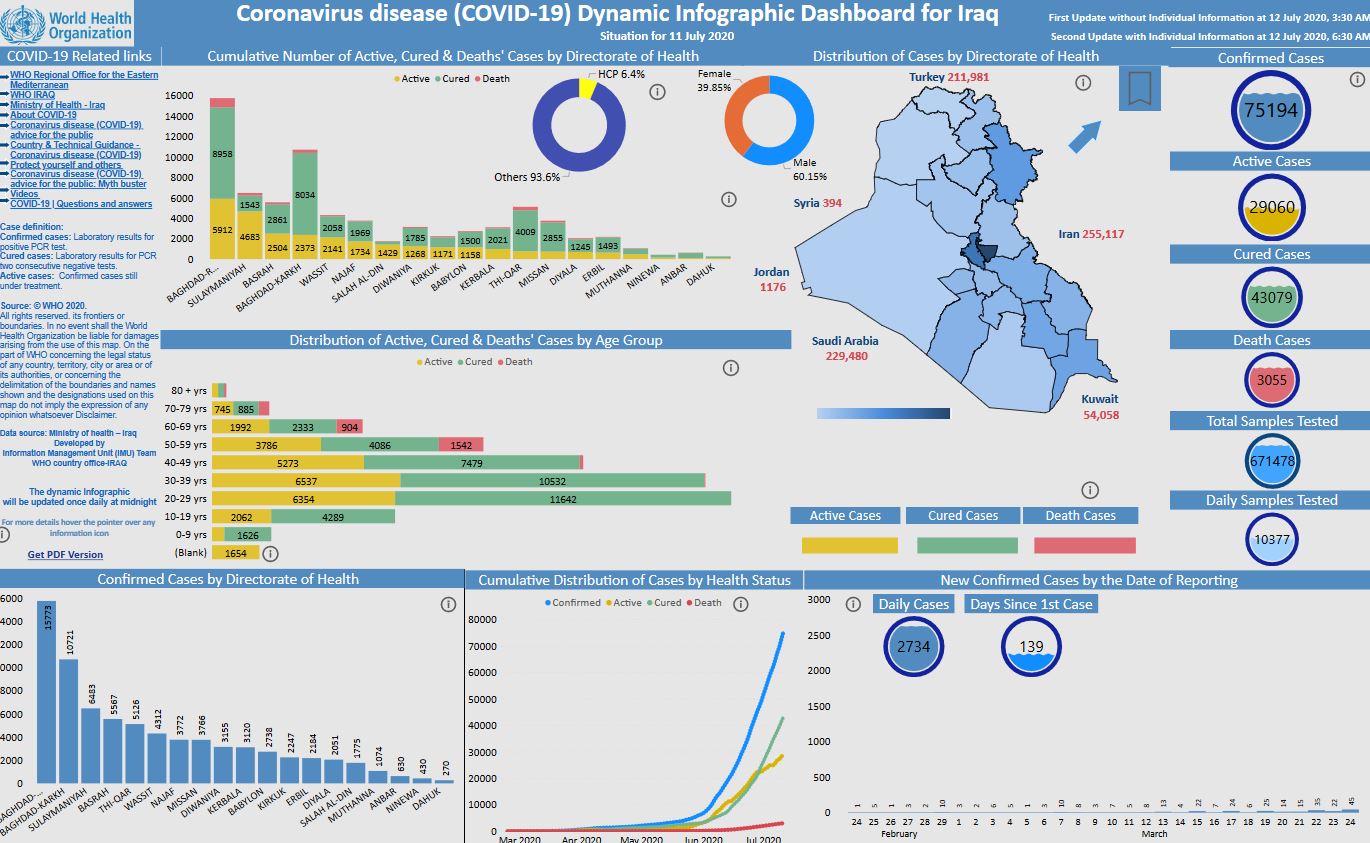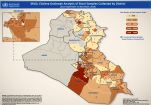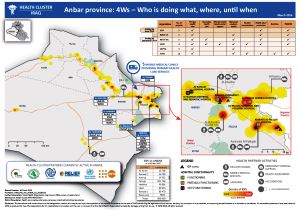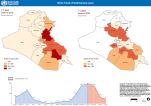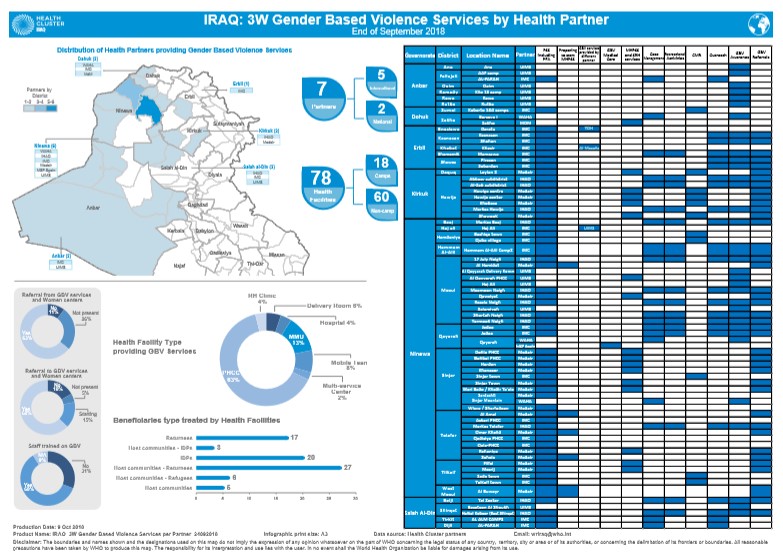Iraq COVID-19 dashboard
Infographics
3Ws Who is doing what, where?
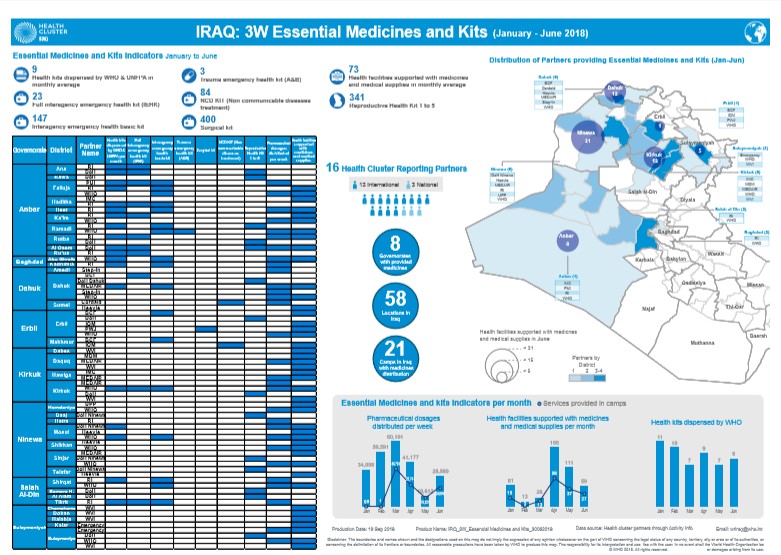 Infographics on who is doing what, where
Infographics on who is doing what, where
Cholera
Diarrhoeal disease kits
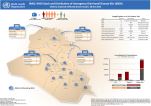 Infographics on diarrhoeal disease kits
Infographics on diarrhoeal disease kits
Essential medicines
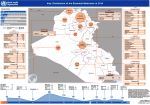 Infographics on essential medicines
Infographics on essential medicines
EWARNS
Health cluster
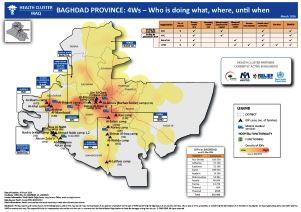 Infographics on who is doing what, where, until when
Infographics on who is doing what, where, until when
Leishmaniasis
Mobile medical clinics
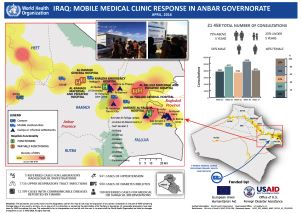 Infographics on status of mobile medical clinics
Infographics on status of mobile medical clinics
Status of health projects
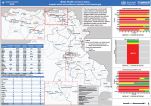 Infographics on status of health projects
Infographics on status of health projects
WHO response activities
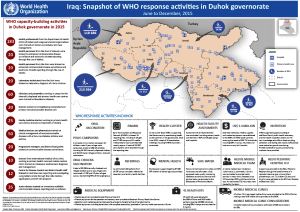 Infographics on WHO response activites
Infographics on WHO response activites
Gender-based violence
World No Tobacco Day
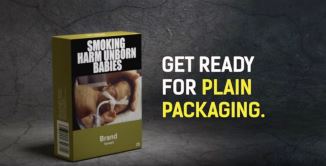 Watch the video: Get ready for plain packingBaghdad, 31 May, 2016 – Every year, on 31 May, WHO and partners mark World No Tobacco Day to highlight the health risks associated with tobacco use and advocate for effective policies to reduce tobacco consumption.
Watch the video: Get ready for plain packingBaghdad, 31 May, 2016 – Every year, on 31 May, WHO and partners mark World No Tobacco Day to highlight the health risks associated with tobacco use and advocate for effective policies to reduce tobacco consumption.
The tobacco epidemic is one of the biggest public health threats the world has ever faced, killing around 6 million people a year. More than 5 million of these deaths are the result of direct tobacco use, while more than 600 000 are the result of non-smokers being exposed to second-hand smoke.
For World No Tobacco Day 2016 WHO and partners are calling on countries to implement plain packaging of tobacco products.
Plain packaging is one of the measures of the WHO Framework Convention on Tobacco Control that restricts or prohibits the use of logos, colours, brand images or promotional information on packaging. It allows only brand names and product names displayed in a standard colour and font style.
In Iraq, World No Tobacco Day is being celebrated in both Erbil and Baghdad governorates with 2 symposiums highlighting tobacco use as one of the 4 main risk factors for noncommunicable diseases. According to the latest surveys, Iraq has a high prevalence of tobacco use among the population with around 20% of the population using tobacco products. In addition, about 11% of youth are current smokers according to the latest Global Youth Tobacco Survey recently conducted in Iraq.
Campaign goals
World No Tobacco Day 2016 aims to:
- reduce the attractiveness of tobacco products;
- eliminate the effects of tobacco packaging as a form of advertising and promotion;
- address package design techniques that may suggest that some products are less harmful than others; and
- increase the noticeability and effectiveness of health warnings.
WHO Representative for Iraq Altaf Musani noted that tobacco-related illness was one of the biggest public health threats the world had ever faced. Approximately one person dies from a tobacco-related disease every 6 seconds, equivalent to almost 6 million people a year. That number is predicted to rise to more than 8 million people a year by 2030, with more than 80% of these preventable deaths occurring among people living in low-and middle-income countries.
WHO is committed to fighting the global tobacco epidemic. The WHO Framework Convention on Tobacco Control, which entered into force in February 2005, has become one of the most widely embraced treaties in the history of the United Nations with 180 State Parties as signatories, covering 90% of the world's population.
Related link
World No Tobacco Day 2016: Get ready for plain packaging
For more information please contact:
Ms Rosane Lopes
Communications Officer
World Health Organization
Iraq Country Office
Email:
Mobile +964 7809 288 614
Dr Thamer Alhilfi
Noncommunicable Disease Technical Officer
World Health Organization
Iraq Country Office
Email:
Mobile +964 7800 397 4515
Ms Ajyal Sultany
Communications Officer
World Health Organization
Iraq Country Office
Email:
Mobile: +964 7510 101 469








